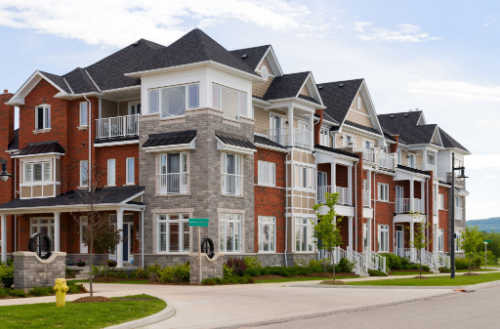
Buyers (and sellers, too) of condominium units are better off knowing that not all condominiums can be approved. At least not by conventional means.
Fannie Mae keeps tabs on condominiums which come under their radar in their tool Condo Project Manager. By far not all condominiums are in the database, only those which were reviewed by Fannie Mae or reviewed by a lender who then shared their lender certification. Out of those reviewed by Fannie Mae, 3,523 condominiums were determined ineligible across the U.S as of 07/12/2024. The list is expected to expand. But this is just a small fraction of ineligible condominiums, as most do not appear in the database or have not been reviewed or have been reviewed by lenders w/o sharing information with the database.
What are the most common reasons condominium cannot be approved? Here is our take:
1. Inadequate master insurance coverage. Due to rising insurance costs, some associations opt to maintain less than 100% replacement cost coverage. Recently, Fannie Mae issued a reminder to lenders: don’t cut corners. Simply “replacement cost” verbiage on master insurance certificates is not good enough. Lenders must obtain confirmation that the building(s) are insured to their full value (100% replacement cost). As it turns out, not all condominiums pass such a test.
2. Outstanding critical repairs. Fannie Mae and Freddie Mac, under direction of Federal Housing Finance Authority, first put forward the new and temporary safety standards in October 2021 and made them permanent with some modifications in July 2023. Condominium approvals were never the same since then. Simply put, condominiums with outstanding critical repairs are not eligible. The standards provide some examples of what is considered critical repairs and regular maintenance. Any mold, water intrusions or potentially damaging leaks, for example, are considered critical repairs, making condominium ineligible until resolved.
3. Association unable or unwilling to furnish information for the lender to make the safety determination. That’s right, some associations do not wish to share information, making claims that lenders should search all safety boards for any inspection results, etc. Some claim that they do not capture meeting minutes. Both are very bright red flags.
Do your due diligence before signing a purchase agreement on a condominium unit. What we recommend:
Obtain the last six months of the association meeting minutes. They will shed light on any existing issues. Inability to obtain meeting minutes should serve as a red flag.
Ask the association if they had any structural or mechanical inspection reports done in the last 3 years. Lenders must obtain and review all such inspection reports as part of condo review process by new Fannie Mae safety standards.
Ask the association if they had a reserve study (professional evaluation of condition and remaining life of major components and how well the projected budget supports those replacements). Reserve study can reveal critical repairs or budget flaws. Lenders must obtain and review reserve study done in the last three years.
Roman Shulman, NMLS ID 11481
Superior Funding Corporation, NMLS ID 2972
Doing business in CT, MA, NH, RI
·

